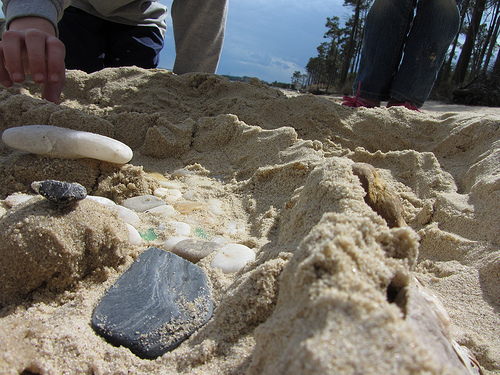Can You Answer this Question in 20 Seconds?
What parking space # is the car parked in?
To find the correct answer quickly, you have to look at the problem from a different angle.
Turn the page upside down.
Ok, you can’t turn your computers or laptops on their heads, but you probably can read the numbers upside down anyway. A 9 becomes a 6, a 6 becomes a 9 and the 8 stays the same.
So the rows are numbered:
86, the car, 88, 89, 90, 91
The car’s parking spot is 87.
I love this problem because it shows the importance of creativity. When confronted with a problem, our natural inclination is to approach it in a traditional way. In this case, we look at the numbers, and try to figure out a pattern.
When we can’t see the pattern immediately, we’re stumped. But those with creative minds are more likely to look for other ways to solve the problem. In fact, children who think creatively are better problem solvers, more effective learners, more open to new ideas and challenges and can work better with others, according to UK-based organization focused on learning and education.
And innovative thinking is the key characteristic to instill if you want your child to be the next Steve Jobs or Oprah Winfrey. In an IBM survey of 1,500 CEOs, creativity was listed as the number one leadership trait of the future.
Here are some ideas for boosting your child’s ability to “think outside the box” (I know, that term is such a cliché 🙂
- Limit screen time. Children who sit transfixed in front of the TV or consumed by playing video games for more than a few hours a day are short-changing their brains. These “gathering data” activities need to be supplemented by “exploring and re-configuring data” activities such as just plain playing, according to Rex Jung, Ph.D., a clinical neuropsychologist with the Mind Research Network in Albuquerque.
- Promote free play. Once the screens are silenced, tell your child to go outside and play or find something to do inside that doesn’t involve electronics. It might be a new concept, but your children will adapt. Ideas include making a fort out of blankets, acting out a play or storybook, pretending to be pirates or princesses. Help them brainstorm.
And two of the tips I gave for raising a thinking child apply to raising a creative child:
- Help them solve their own problems. When your son comes crying that he’s had a fight with his best friend or he can’t find his homework, you could say, “Let’s think about a few ways you can make things right with Johnny,” or “Let’s list the places you’ve looked for your homework, and brainstorm what can you do if it’s gone for good.”
- Assure your child that it’s okay to make mistakes. Many children would rather not try to answer a question because they don’t want to be wrong. But the “thinking” part is the objective, not finding the answer. Let them off the hook of perfection.
According to Albert Einstein, creativity is seeing what everyone else has seen and thinking what no one else has thought. Isn’t that a great ability to foster in your child?







